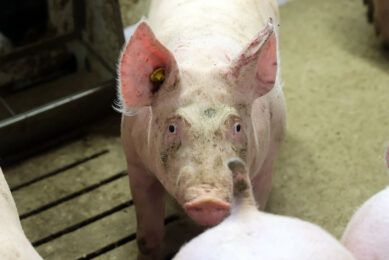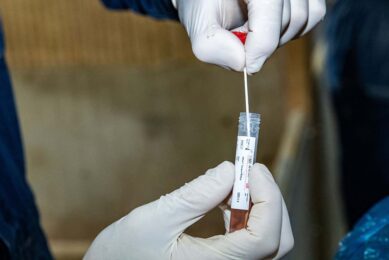Thailand: H1N1 investigated in pigs
Scientists in Thailand have investigated the effects of H1N1 swine flu in a group of piglets.
Scientists writing in BioMed Central’s open access Virology Journal studied the pathology of the virus, finding that all infected animals showed flu-like symptoms between one and four days after infection and were shedding virus two days after infection.
Roongroje Thanawongnuwech led a team of researchers from Chulalongkorn University, Bangkok, who infected 22-day old pigs with both the H1N1 strain of swine flu and the less dangerous H3N2 subtype. He said, “The results demonstrated that both swine flu subtypes were able to induce flu-like symptoms and lung lesions in weanling pigs. However the severity of the disease with regard to both gross and microscopic lung lesions was greater in the H1N1-infected pigs”.
All infected pigs developed respiratory symptoms such as nasal discharge, coughing, sneezing and conjunctivitis. Upon pathological examination, lung lesions large enough to be seen by the naked eye were observed. According to Thanawongnuwech, “These lesions were characterised by dark plum-colored, consolidated areas on lung lobes and were most severe two days after infection, especially in the H1N1-infected pigs, where approximately a third of the lung was covered”. The course of infection was limited to less than a week and none of the animals died.
The article, “Pathogenesis of swine influenza virus (Thai isolates) in weanling pigs: an experimental trial” is available online.











